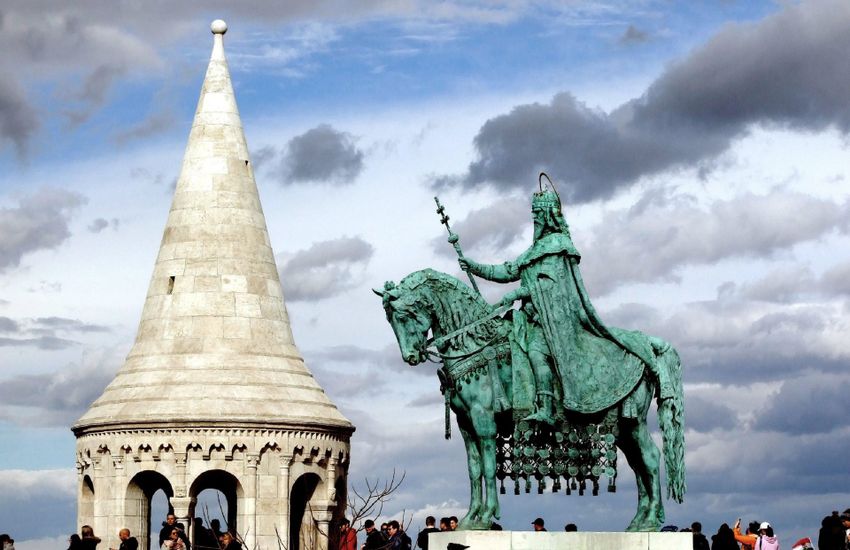It is an old, bad habit that we like to slander and suspect people with a reputation for holiness and people capable of great deeds. We like to drag them down from the pedestal they deserve because of some perceived or real bad act. St. István, our first king who founded the state, is also treated with unworthy words more than once.
For many decades, almost only one merit of the textbooks was recognized: the fact that he praises foreigners and praises the country of many nationalities in his Intelles written Prince Szent Imre However, in the quoted lines, our apostolic king talks about the importance of skillful diplomacy: "...just as guests come from different countries and provinces, they bring with them different languages and customs, different examples and weapons... Protect and cherish the newcomers with good will, so that they would rather stay with you than live elsewhere..." So he does not advise his son to invite as many strangers as possible, to welcome them into his country, but to be hospitable, to let the foreigners be the ornaments of his court, so that the valuable knowledge, language and customs, and even getting to know the weapons of the guests can be important.
We are all well defined by our words. Saint István can also be known most authentically from his own words, from his Intellects that are still true and valid today. This writing of his is often said to be the will of our great king. However, in Intelmek, a man at the top of his strength speaks to his adolescent son to prepare him for royal duties with gentle but tried and wise advice: "Keep your word, my son; you are a child, my little servant born in wealth, inhabitant of soft pillows, cherished and brought up in all beauty, you have not experienced the toils of the campaigns and the attacks of various peoples, in which I wasted almost my entire life..." - read in the introduction .
And then there are ten short, concise, but passionately written chapters, which could also be called the Ten Commandments of St. Stephen, because they reflect his perception of valuable human qualities, including the virtues of a ruler.
"... my dear son, ... preserve the Catholic and Apostolic faith with such zeal and vigilance that you set an example for all God-ordained subjects... ... In
the royal palace, after faith, the church occupies the second place, the church of which we are the head for the first time, (…) Christ sowed his seed…
…If you become a lover of peace, you will be called a king and a king's son, and all valiant men will love you;
if you boast angrily, haughtily, hatefully, restlessly over the Spaniards and nobles, (...) your kingdom falls on others... ...love the true judgment;
if you want to keep your soul in your power, be patient... ...Patient kings rule, and the impatient are tyrants...
...If (...) you walk with the wise, you will be wise, if you roll with fools, you will associate with them... ...
He who (indeed) despises the laws of his fathers, is he doesn't even pay attention to the divine laws...
...Pray also that (God) drives away inactivity and indolence from you, and grants you the help of all the virtues, so that you can defeat your visible and invisible enemies... ...if
the king is defiled by impiety and cruelty, despite the king's claim by name, you must be called a tyrant...
...the practice of love leads to the highest happiness.
Be merciful to all those who suffer violence, always keep in your heart the divine admonition: "I want mercy, not sacrifice."... ...be strong, so that fortune does not take you too far, or misfortune pushes you away.
Be humble, so that God may exalt you now and in the future... ...do not punish or revile anyone beyond measure. Be gentle, never fight against the truth. Be honest, never deliberately dishonor anyone. Be modest to avoid all the stench of lasciviousness, (…) the inducement of death… ”
Certainly, every child today should learn the Wisdom of St. István already in elementary school.
Author: Katalin Mezey
(Cover photo: Hungarian Nation)













